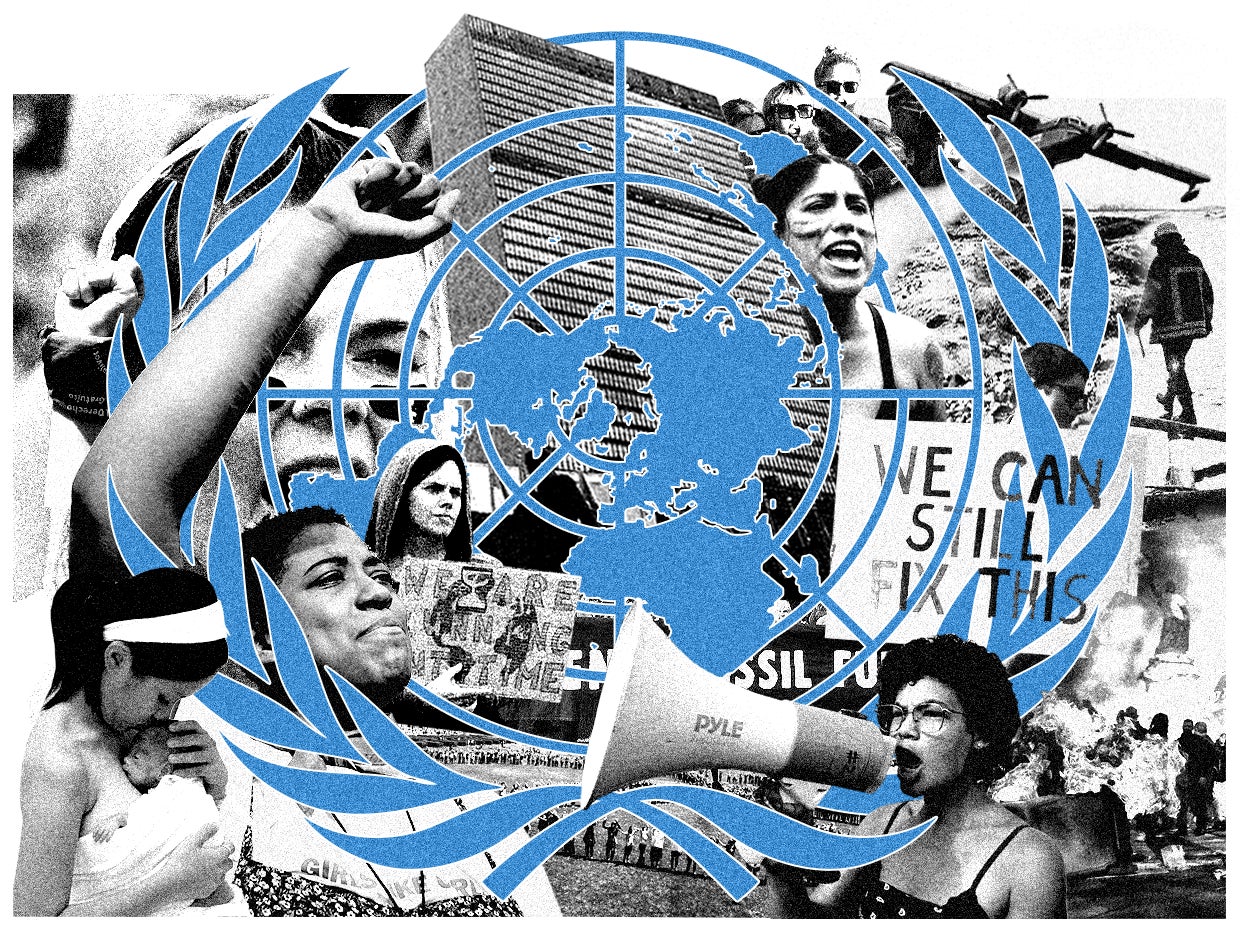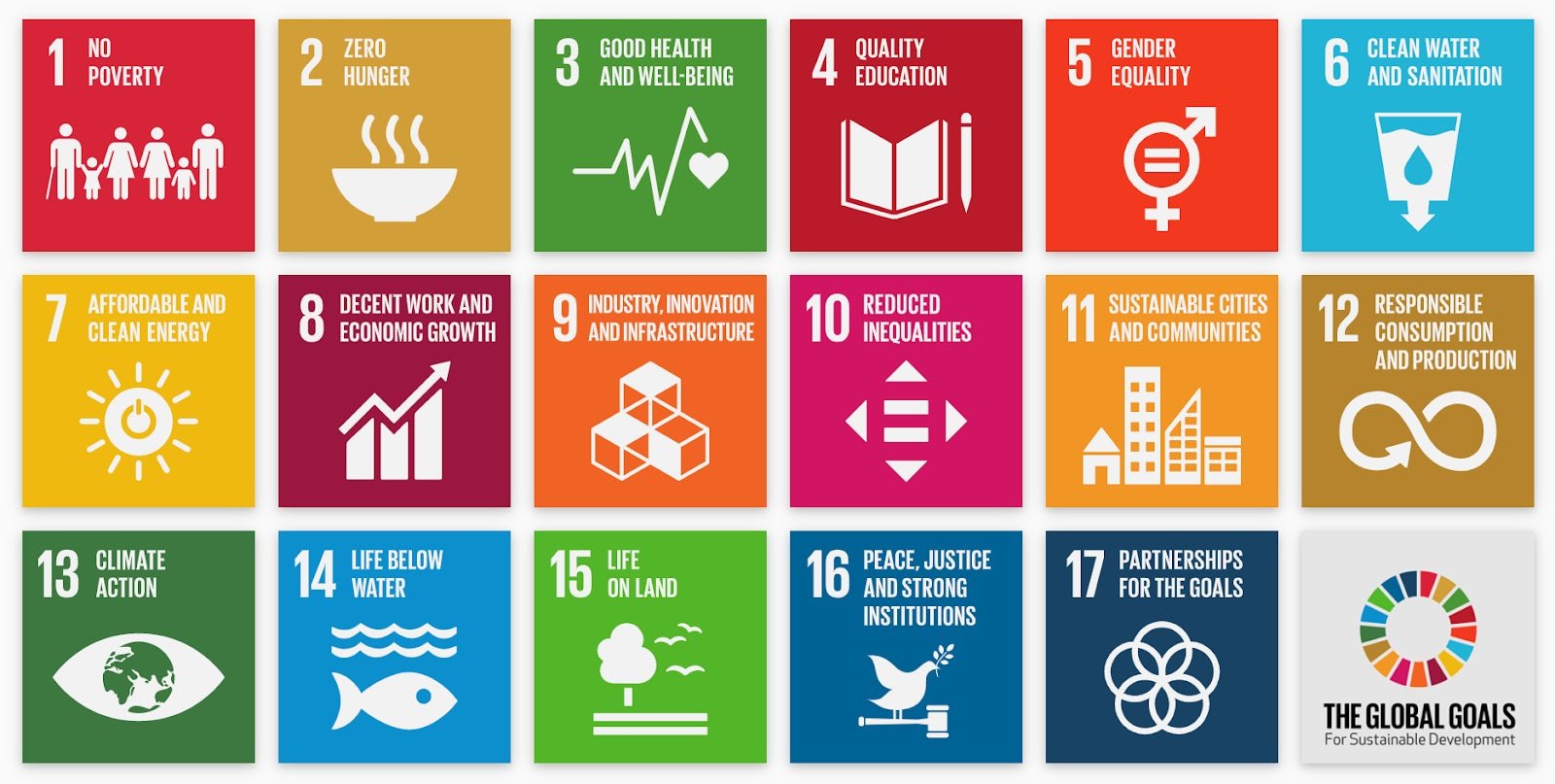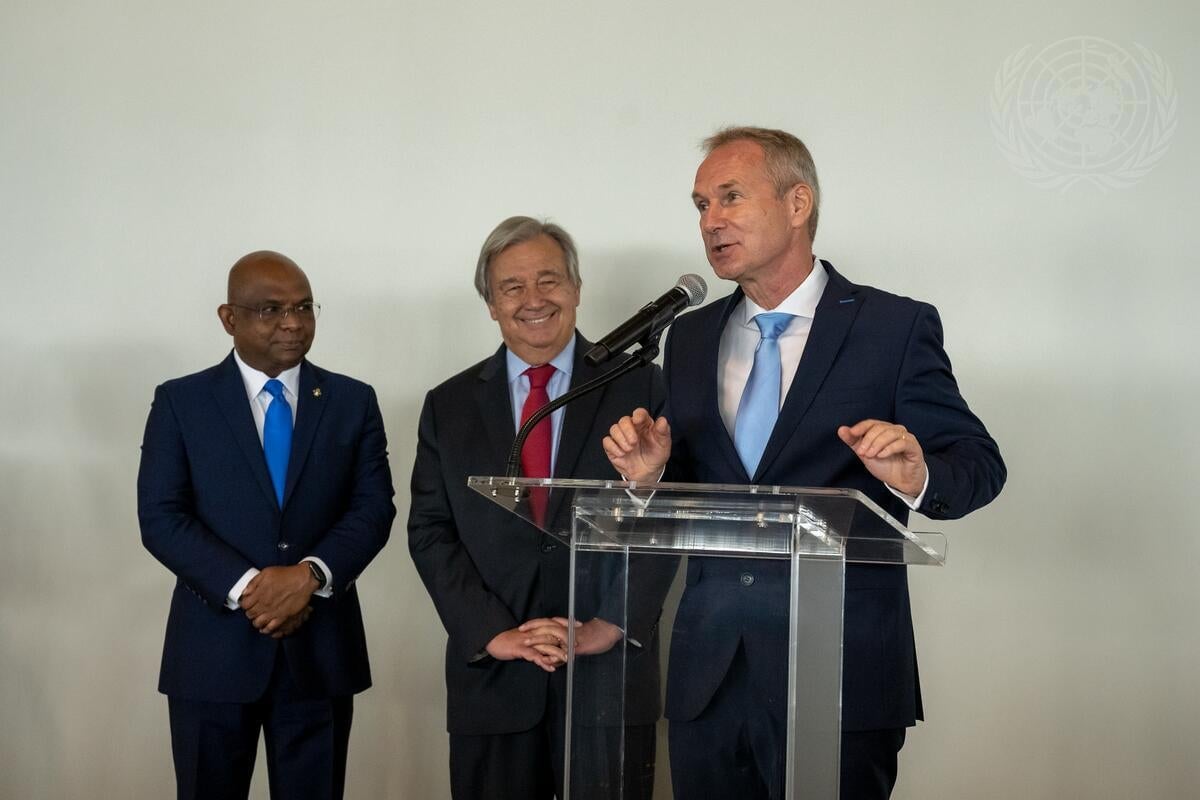Let UNGA begin
Plus: What's an SDG anyway?

Greetings, UN delegates and UNGA watchers!
The 77th session of the United Nations General Assembly begins today, and Quartz is here, with correspondents in New York and around the world, to help you make sense of what comes of it.
Surely there’s a lot of sense-making to be had, between the war in Ukraine, the ongoing covid-19 pandemic, the first increase in 20 years in extreme global poverty, the continued heating of the planet, and a fresh warning from the UN’s International Labour Organization about the shocking number of people around the world trapped in forced labor or forced marriages.
But don’t worry—it won’t be all doom and gloom. Last year’s UNGA proceedings included appearances from the likes of K-pop kings BTS. World leaders know they’ll need all the star power at their disposal to draw attention to the causes highest on their agenda and inspire the actions required.
This newsletter will drop into your inbox periodically over the course of the next two weeks. We’ll provide highlights of the upcoming schedule, important context on a range of debate topics, and the occasional bit of needed comic relief from all the bureaucratic formalities.
By the way, the information is welcome to flow both ways. Throughout the UNGA fortnight, we invite you to send us tips, cocktail party invitations, and bets on which commitments made by countries, or by the companies represented at the sideline events, will come to pass.
What to watch for
Tuesday, Sept. 13 (all times local to New York unless otherwise specified)
👩⚕️👨⚕️ WHO knows. At 8 am, the World Health Organization introduces the World Rehabilitation Alliance (WRA), which will promote rehabilitation as an essential health service. At this virtual pre-launch event, the alliance will announce its five workstreams and steering committee.
🗓️ The official opening. UNGA 2022 is formally called into session at 3 pm.
Wednesday, Sept. 14 (all times local to New York unless otherwise specified)
🏢 So what do you do, exactly? A speaker series featuring sustainable development workers talking about their careers begins at 8 am.
Thursday, Sept. 15 (all times local to New York unless otherwise specified)
📊 Investing in data. Measuring and achieving gender parity requires good data, and good data requires funding. At 10 am, PARIS21, Data2X, UN Women, and Open Data Watch bring together country representatives, gender equality advocates, development data experts, and philanthropic institutions to combat chronic underinvestment in gender data and to develop coalitions that will build better systems.
🌎 The Amazon we want. At 1:45 pm at Scandinavia House (58 Park Ave.), a panel of notable scientists will discuss the state of the Amazon, the impact of deforestation, and sustainable development solutions for the region. We hear the venue expects to be at capacity, but a livestream will be available.

GOOOOOOALLLLLLLLL
In 2015, the UN member nations agreed to a series of ambitious targets meant to reduce poverty, fight inequality, and halt climate change by 2030. These are the Sustainable Development Goals, or SDGs. Throughout these UN General Assembly pop-up emails, we’ll dive into a few of them, and let you know how they’re going (spoiler: overall, not great).
But first, a few numbers:
17: Total SDGs.
193: UN member countries that agreed to the targets.
169: Individual targets within the SDGs themselves, like, “Reduce neonatal mortality to at least as low as 12 per 1,000 live births” or “Minimize and address the impacts of ocean acidification.”
1 (at least): Animated music video about the goals, by Japan’s public broadcaster NHK.
232: Unique indicators, or datasets, that are tracked to monitor progress on the SDGs.
$176 trillion: Estimated cost to achieve all the goals by 2030.
1: Planned SDG park in Sweden.

Person of interest
Hungarian diplomat Csaba Kőrösi (at the podium above) presides over this year’s meeting. Elected in June, the UNGA 77 president was vice-president of UNGA’s 67th session and most recently served as director of environmental sustainability at the office of the president of Hungary. Following his appointment, Kőrösi summed up his priorities for the session with some alliteration: “Solutions through solidarity, sustainability and science.”
Kőrösi’s CV is filled with interesting roles. For example, from 2001 to 2002, he was deputy state secretary in charge of multilateral diplomacy, as head of the NATO-WEU (North Atlantic Treaty Organization-Western European Union) department. He has served as Hungary’s ambassador to Greece and held various posts at Hungary’s embassies in Tel Aviv and the UAE. He graduated from the Institute of International Relations in Moscow and continued his education at Hebrew University (studying Middle East issues), and at the University of Leeds (for a diplomatic course) and Harvard (for a strategic negotiation course).
News from elsewhere
The goal of ending modern slavery by 2030 is proving elusive. The UN recorded a rise of about 10 million people subjected to forced labor or forced marriage in the past five years.
Sweden’s right wing is on course to secure a narrow win. Final election results are not expected until Wednesday, but the bloc is on track for a one-seat majority.
Starbucks boosted benefits for non-union employees. The announcement comes ahead of the coffee chain’s Investor Day, an annual presentation of the company’s growth plan.
Africa’s first hydrogen plant is expected to start up in 2024. France’s HDF Energy stated the plant, located in Namibia, will be able to produce clean energy for 142,000 people.
Thanks for reading! We’ll be back in a few days with more UNGA news.
- Heather Landy, executive editor; Amanda Shendruk, things reporter; Sofia Lotto Persio, deputy editor, news and email; and Morgan Haefner, deputy email editor